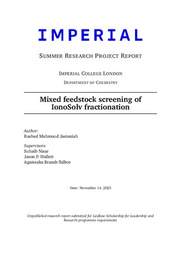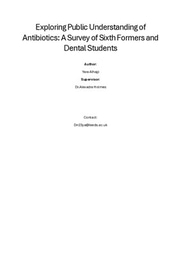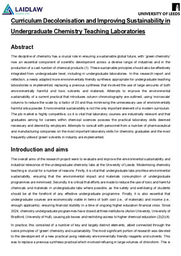Queer Lives: Narrations of Work Abroad (May 29)

Why, oh why, do people in India wake up so early? It feels as if I’ve slept for only minutes when the low shriek of my grandmother’s alarm starts, echoing through the apartment. I roll over, bleary-eyed, and check the time – it's only half past four, only about an hour since I went to bed. Although the sounds of morning – the hum of a microwave, shuffled steps around the kitchen, an open tap – have already begun, I shove a pillow over my face and shut my eyes determinedly. It is, in my opinion, far too early to be awake.
In my stubbornness to fall back asleep, however, I forget to set my own alarm – an error which proves grievous, as I wake up six hours later to bright light shining through the windows and a household which is in full swing. Tripping over the blanket as I jolt up, I quickly brush my teeth and throw some clothes before heading out to greet everyone with a slew of apologies for my late start. Joining Ravi Mama Thatha and Uma Paati at the table is a lady I don’t recognise immediately, but I can spot the similarities between her and my own grandmother. As I sit down at the table, I’m re-introduced to Vasu Paati, my grandmother’s sister, my great-aunt.
No day in India begins without coffee, but this is not the coffee you may be used to if you’ve grown up outside Asia. In fact, as I confess to Uma Paati as I watch her boil a pot of water, I usually dislike coffee, greatly preferring a cup of black or green tea in the mornings. Indian coffee, or filter coffee, however, is the exception. A sweet, piping hot concoction that is more milk than coffee, it is a staple of morning routine in Chennai – a shared experience enjoyed sitting around the table with a half-shuffled deck of cards or various pieces of family gossip. Pulling up a chair, I gratefully accept my cup and join the conversation.
Reconnecting with family in India is always a complicated experience. On the one hand, relatives have often met me at least once before; on the other, this meeting has usually taken place when I was too young to remember it. In some sense, there is an expectation of familiarity, and even a genuine sense of familial ties, but my jetlag-addled brain is struggling to start a conversation. After a few moments of awkward silence, however, Vasu Paati and her husband ask me about university life – an olive branch I grab immediately. From there, the exchange proceeds warmly and naturally; I want to know about my family, and they want to know about me.
I grew up in California with my parents, in a tight-knit, three-person unit, surrounded by a medley of friends so close they became family. It may not be the most nuclear arrangement, but it is one I hold extremely dearly. My perception of family has always been thus shaped – blood only takes you so far. The people who you choose to be around are always the closest family you have. And while I didn’t have typical Indian family traditions, what I did have I find even more special: annual concerts, sharing freshly baked scones around a table, monthly trivia competitions that stretched across hundreds of miles. Many of my relatives I met only once or twice as a young child, and meeting them again now as an adult is, for lack of a better word, dissonant; I feel sometimes as if they continue to see a younger version of me, because most of them have not had the opportunity to know me, nor I them – until now. So, while the initial conversation may be stunted and awkward, I am always grateful for the chance to still know my relatives to whatever extent possible, to find home in where I come from alongside where I am now.
After Vasu Paati leaves, the house quietens, blanketed by the afternoon warmth and the settlement of a good meal. As everyone separates for a midday nap or a solitary hour with a book, I stretch out on the bed with the intent of reading, but quickly fall asleep, lulled by the steady whir of the fan above and the sounds of traffic echoing through the open windows. When I wake, it’s nearly five, and I head back to the kitchen for a quick cup of coffee – my friend is meant to be visiting soon, and I desperately need to shake off my drowsiness. I’ve just downed the last dregs from my cup when the doorbell rings; Adi, my friend from university, is waiting outside with a plastic bag and a comforting smile. It’s wonderful to see him – work abroad is always lovely, especially when you can see family, but the familiarity of a close friend is always grounding, an anchor that roots you.
Adi and I decide to brave the bustling streets, heading to a local cafe to indulge in tabletop chaat – veggie puffs, aloo (potato) puffs, bread pakora, and a variety of mango-themed desserts. I intend to eat lightly, as I have further dinner plans, but I’m quickly overtaken by eagerness to try everything on the table, and so, we feast, hands greasy and caked with pastry flakes. Food always makes me feel close to India – while I was distant from several parts of south Indian culture growing up, food was always a connection to family. And though I do love trying new cuisines when I travel, there’s something incredibly comforting about the staining orange of turmeric or the recognizable smell of roasted potato. Here, in Chennai, it’s everywhere – pinned to the air and seeped into the ground, laying still on my skin.
The final excursion of the day is once again in praise of food – this time, to a Kerala restaurant where I order a steaming hot bowl of kanji, a spiced rice porridge usually enjoyed with a variety of toppings (I choose a spicy fish curry, prawns, and pickle). But the star of the meal is, by far, the dessert – a cloud-like coconut pudding which quite literally melts in your mouth, if you allow me the cliche.
After heading back to the Adyar apartment, I curl up on the couch with my laptop as everyone retires to bed, kept awake once again by time difference and adrenaline. This time, at least, I make better use of my insomnia, working steadily on my weekly plan and preparing for my upcoming meeting with my project supervisor. I am determined to sleep at a somewhat reasonable hour, but hours are oddly slippery at times, and before I realize it’s well past midnight and I’ve listened to the entirety of my playlist three times over. My bones feel dragged by some unknown weight – not exactly sleepiness, but a general tiredness that seems suddenly overwhelming – and I can’t even consider moving from my comfortable corner. Instead, I gently close my laptop and pull my knees to my chest, somehow fitting my one-hundred-and-eighty-centimetre frame into the seat. Over the next hour, encompassed by a symphony of chirping, flickering lights, and faraway breathing, I fall asleep.





Please sign in
If you are a registered user on Laidlaw Scholars Network, please sign in